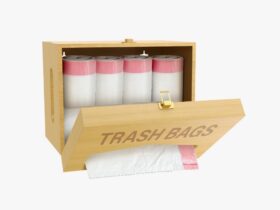Driveway sealing combines both art and science to protect and enhance the lifespan of asphalt or concrete surfaces. It involves meticulous preparation, precise application of sealants, and a keen understanding of materials to ensure durability and aesthetic appeal.
Driving home after a long day, what’s the first thing we notice? The driveway. It greets us like an old friend, serving as an essential part of our residences. But how often do we truly understand the importance and intricacies of maintaining our driveways? This post aims to illuminate the topic of driveway sealing, a pivotal maintenance practice that can extend the life of your driveway and boost your property’s curbside appeal. So, what is driveway sealing? Why is it so important? How can we properly implement this practice in our homes?
The Importance Of Driveway Sealing
A well-sealed driveway possesses aesthetic allure and long-lasting life which contribute to a home’s marketability and overall worth. Additionally, sealing helps to minimise weather-induced damage, frequent repairs, and avoids cracks that can cause accidents. Essentially, a sealant acts as a protective layer, safeguarding your driveway from elements such as sun, water, and car fluids that can cause discolouration, cracks, and other forms of deterioration. By regular application, you prevent minor issues from ballooning into bigger, pricier problems.
The Method Behind Driveway Sealing
Driveway sealing is a process designed to protect and prolong the life of asphalt or concrete driveways. It involves cleaning the surface, repairing cracks and holes, applying a sealant to prevent water penetration and UV damage, and ensuring a smooth, attractive finish. Regular sealing can enhance curb appeal and prevent costly repairs by maintaining the driveway’s integrity against weather and wear.
Choosing Sealant Materials
Selecting the right sealant can heavily influence the durability and finish of your driveway. There are primarily two types: coal-tar emulsion and asphalt emulsion sealers. Coal-tar sealers offer longer-lasting protection and resistance to oil or gasoline penetration but come with potential health risks. Meanwhile, asphalt sealants are safer and friendlier to the environment but might require more frequent re-application.
Understanding The Pros And Cons
Like any home improvement task, driveway sealing comes with its share of benefits and drawbacks. Pros are increased longevity, aesthetics and safety. On the downside, the process can be messy, time-consuming, and require a set of special materials and tools. Additionally, weather can significantly affect the process, from application to drying.
When Should You Sealed Your Driveway?
Generally, new driveways require a few months to properly cure before sealing, while older driveways may need sealing every two to four years, depending on usage and weather patterns. Ironically, the best periods for sealing are during the warmer months, when the sealant can properly cure without interference from cold or moisture.
Who Can Do The Driveway Sealing?
Driveway sealing can be done by professional contractors who specialize in asphalt or concrete maintenance. Homeowners can also tackle smaller jobs with proper equipment and guidance, ensuring safety and effectiveness in protecting their driveway.
As a homeowner, you can certainly undertake this task, especially if you possess a knack for DIY projects. Alternatively, professionals offer expert advice, experience, and equipment to ensure a thorough, long-lasting job with warranty.

Conclusion
In wrapping up, driveway sealing is a critical home improvement and maintenance practice that keeps our driveways attractive, durable, and safe. The selection of quality sealants and the correct implementation can significantly boost this process, adding longevity and aesthetics to your home. So next time you see your driveway, remember it does more than connecting your home to the road; it adds value to your lifestyle and your property. Don’t neglect it; instead, treat your driveway as you would a best friend, for it surely is.









Find Us on Socials